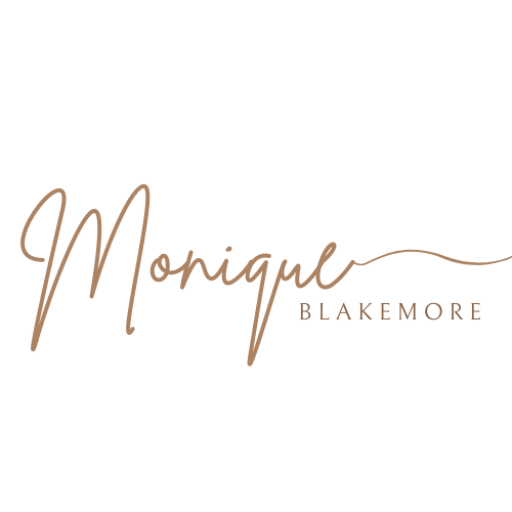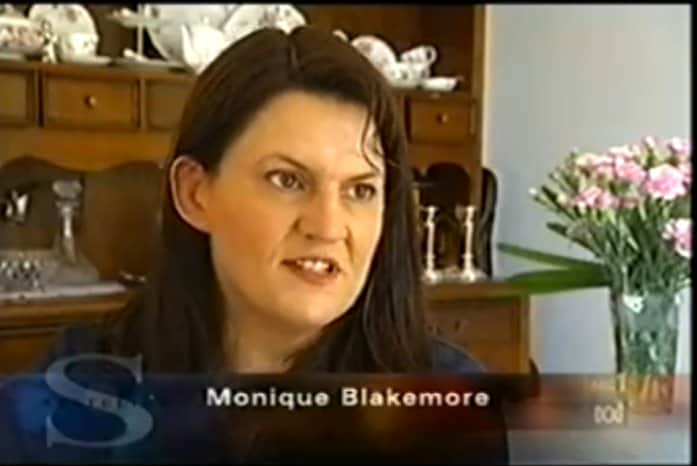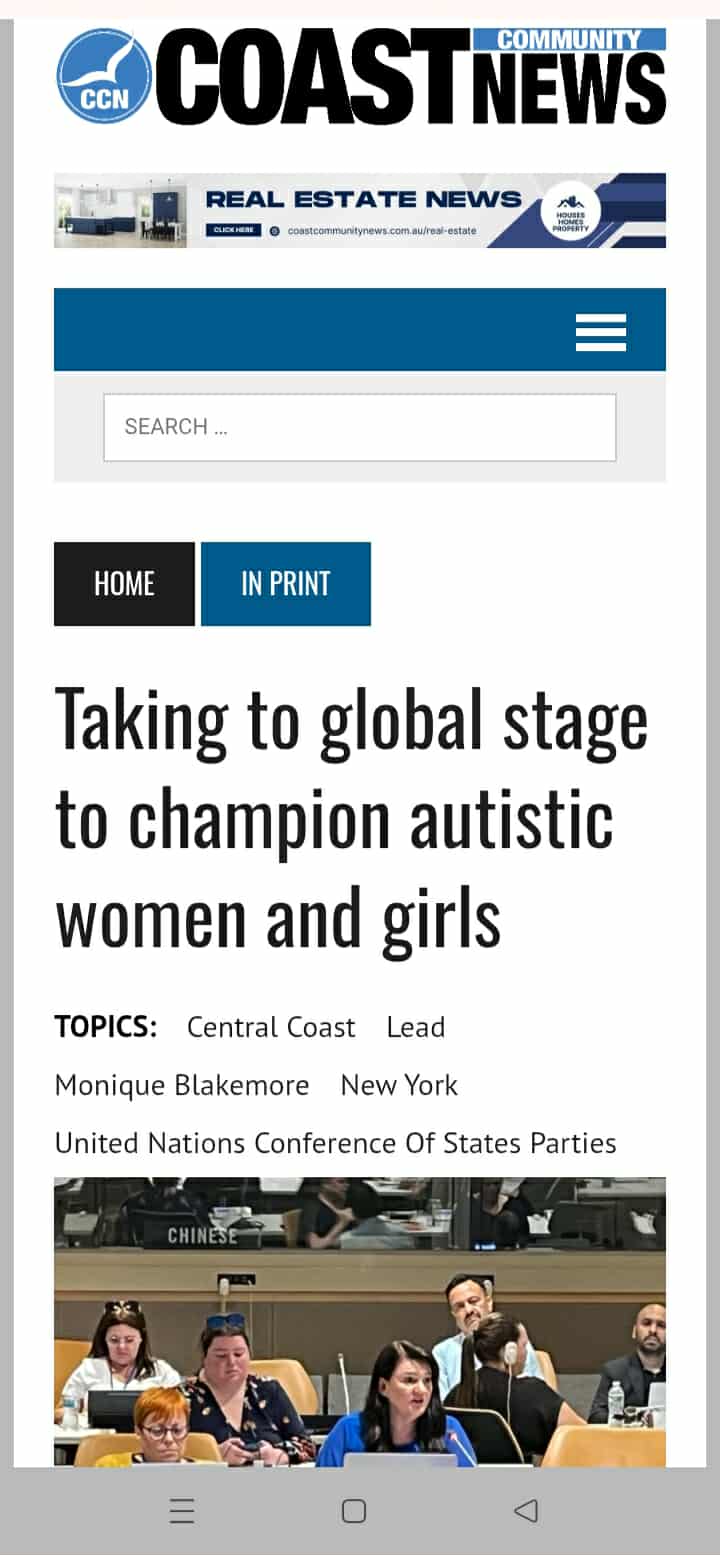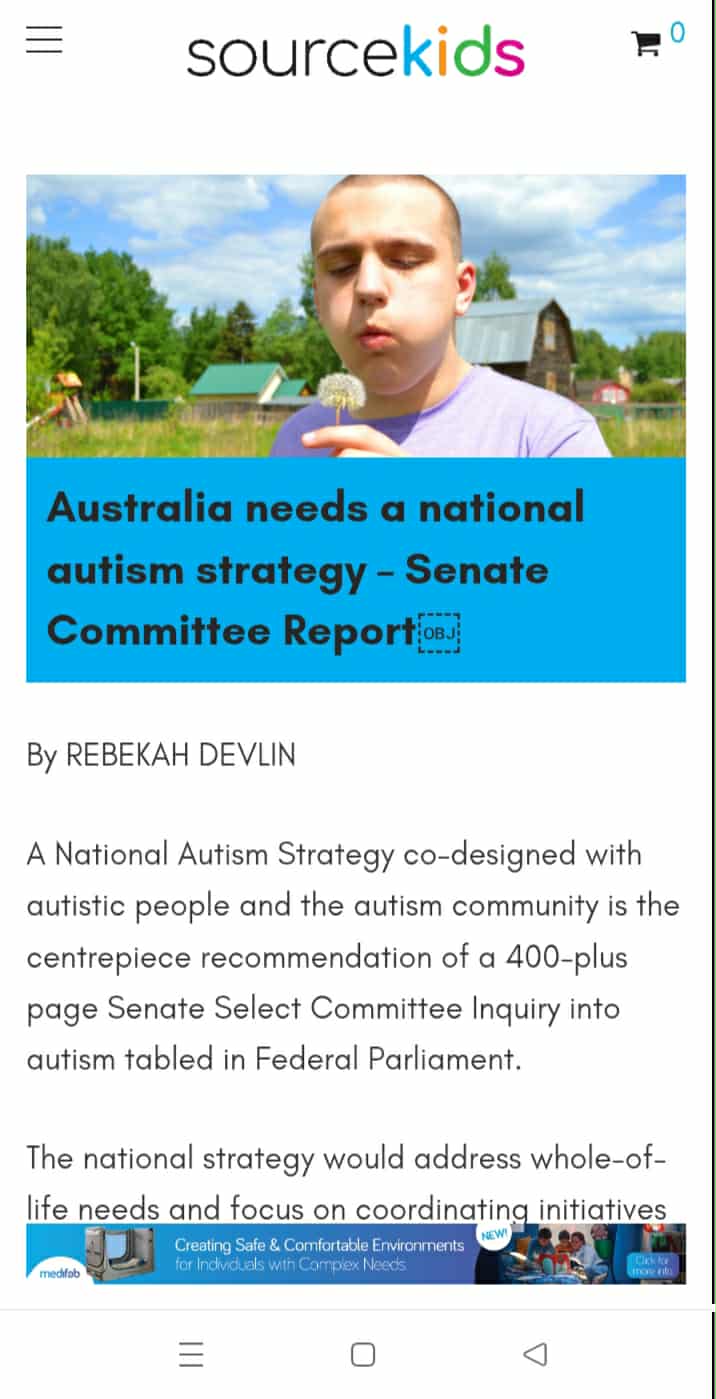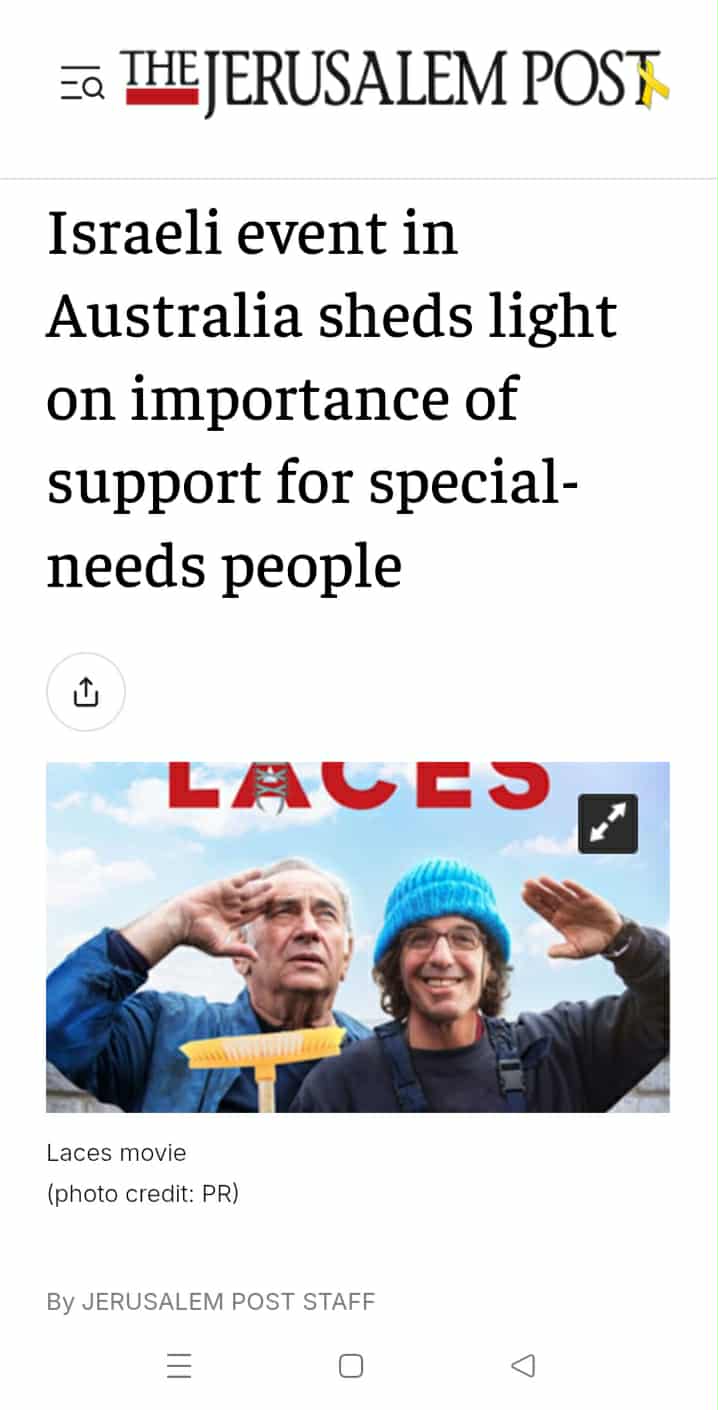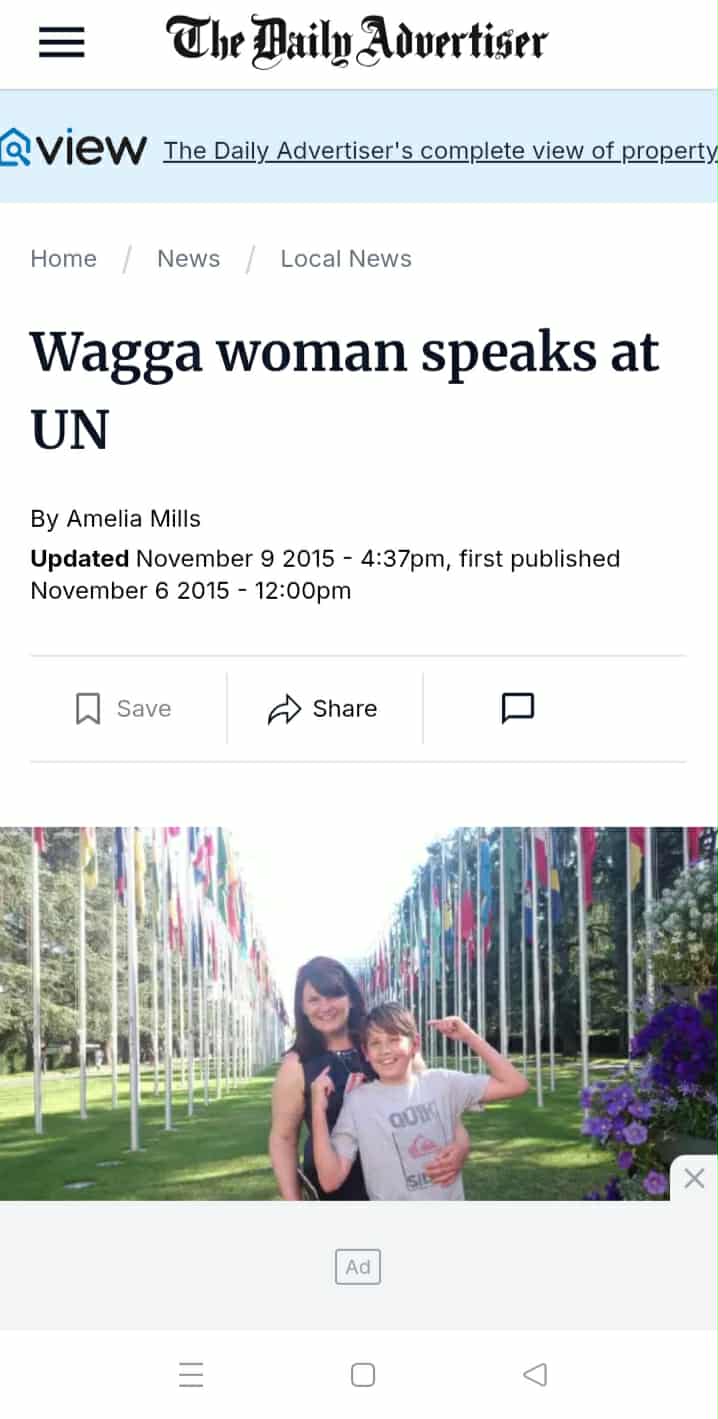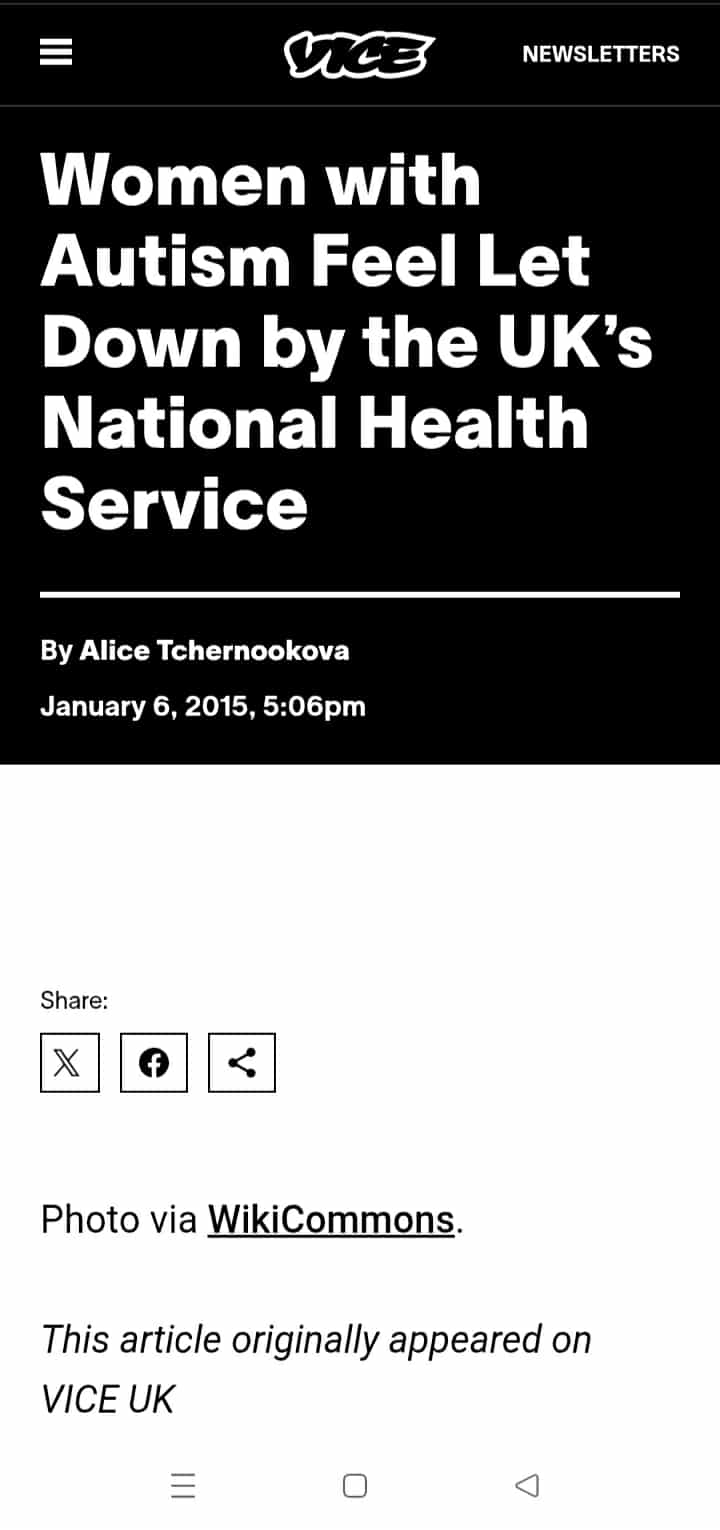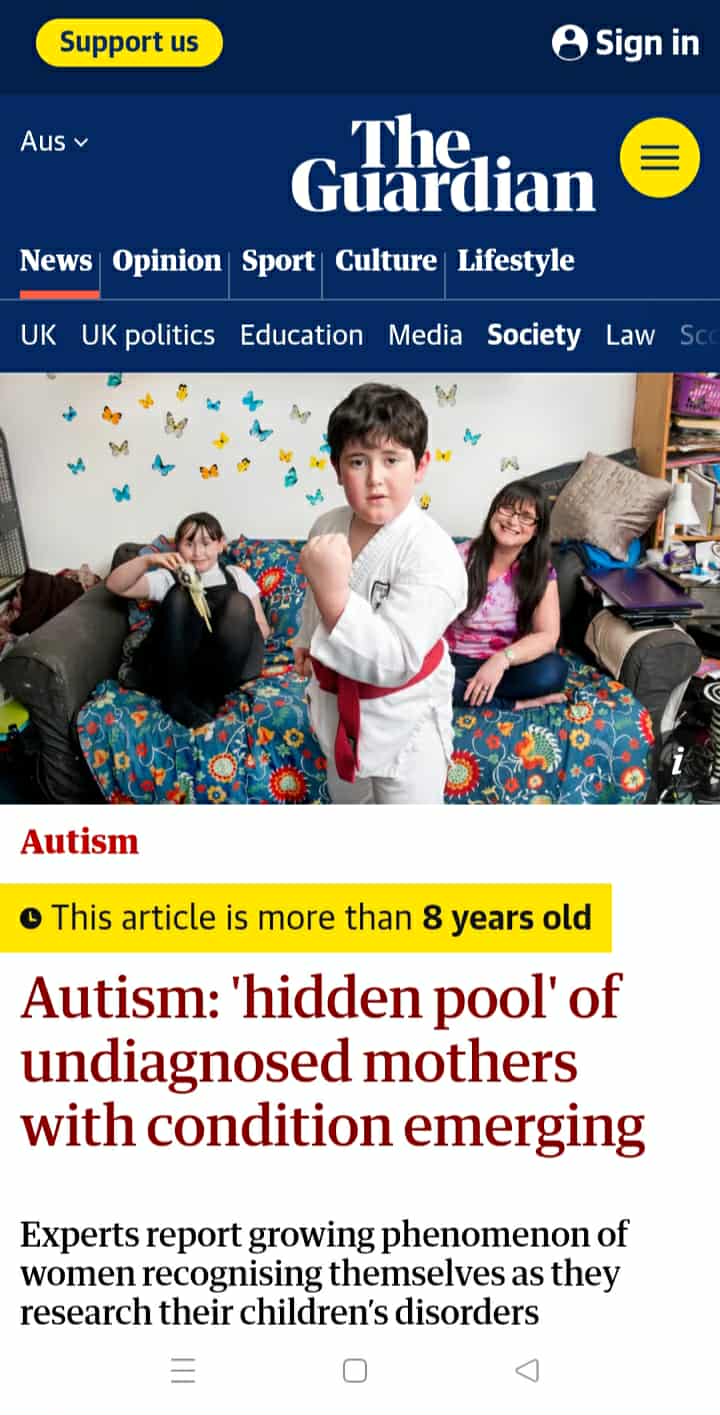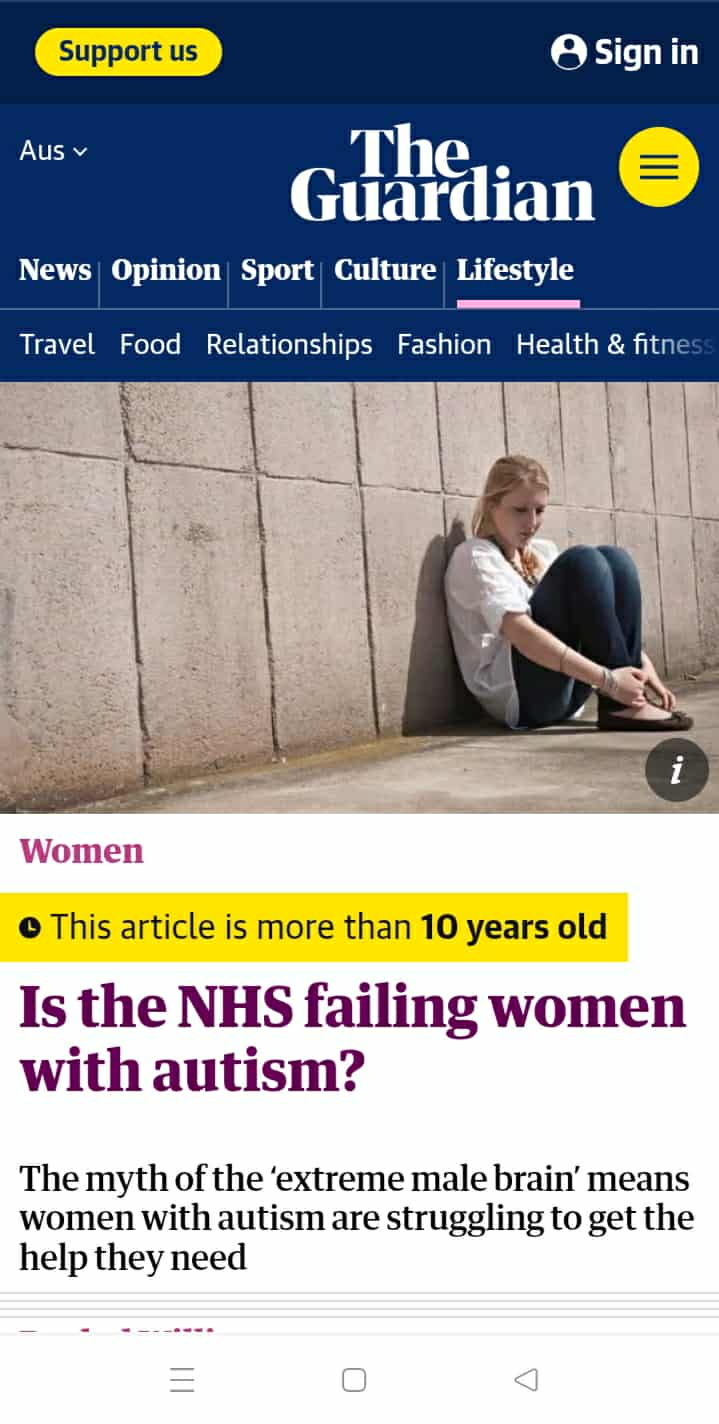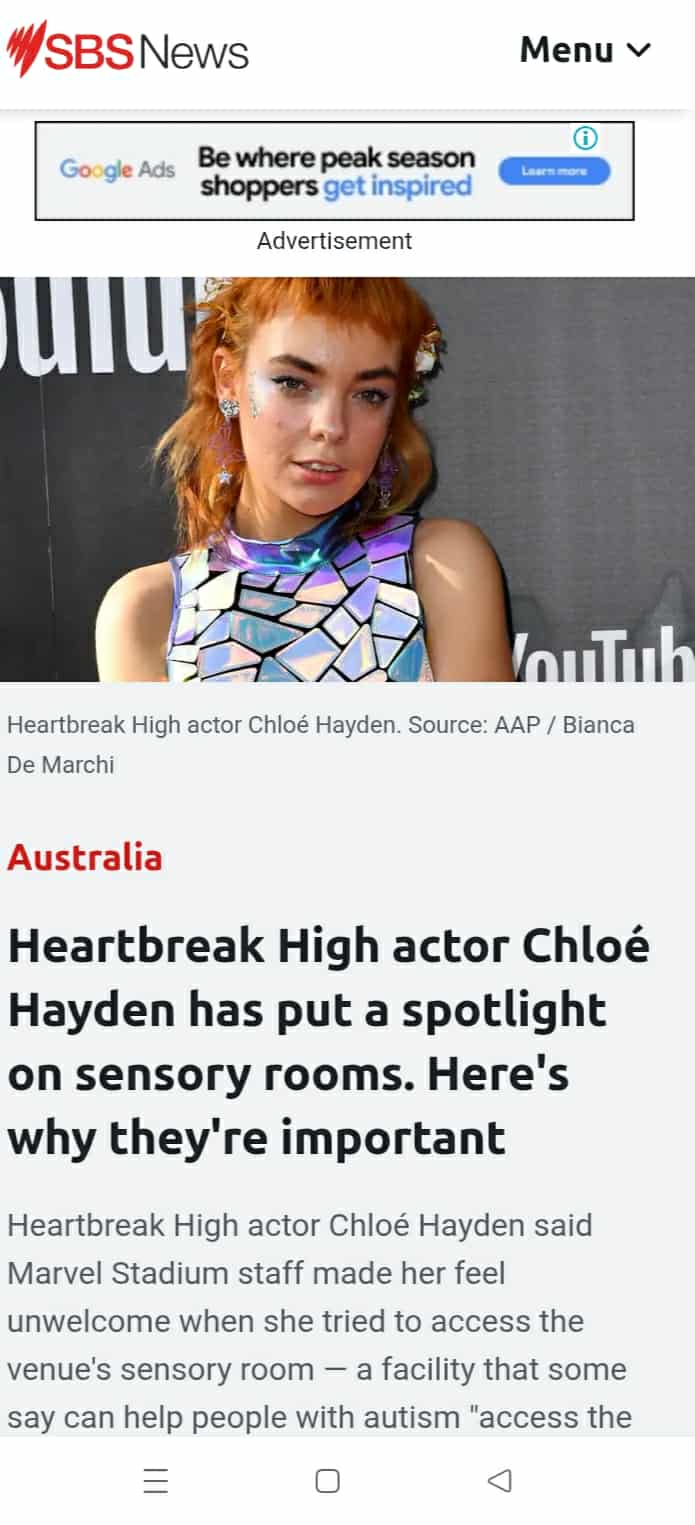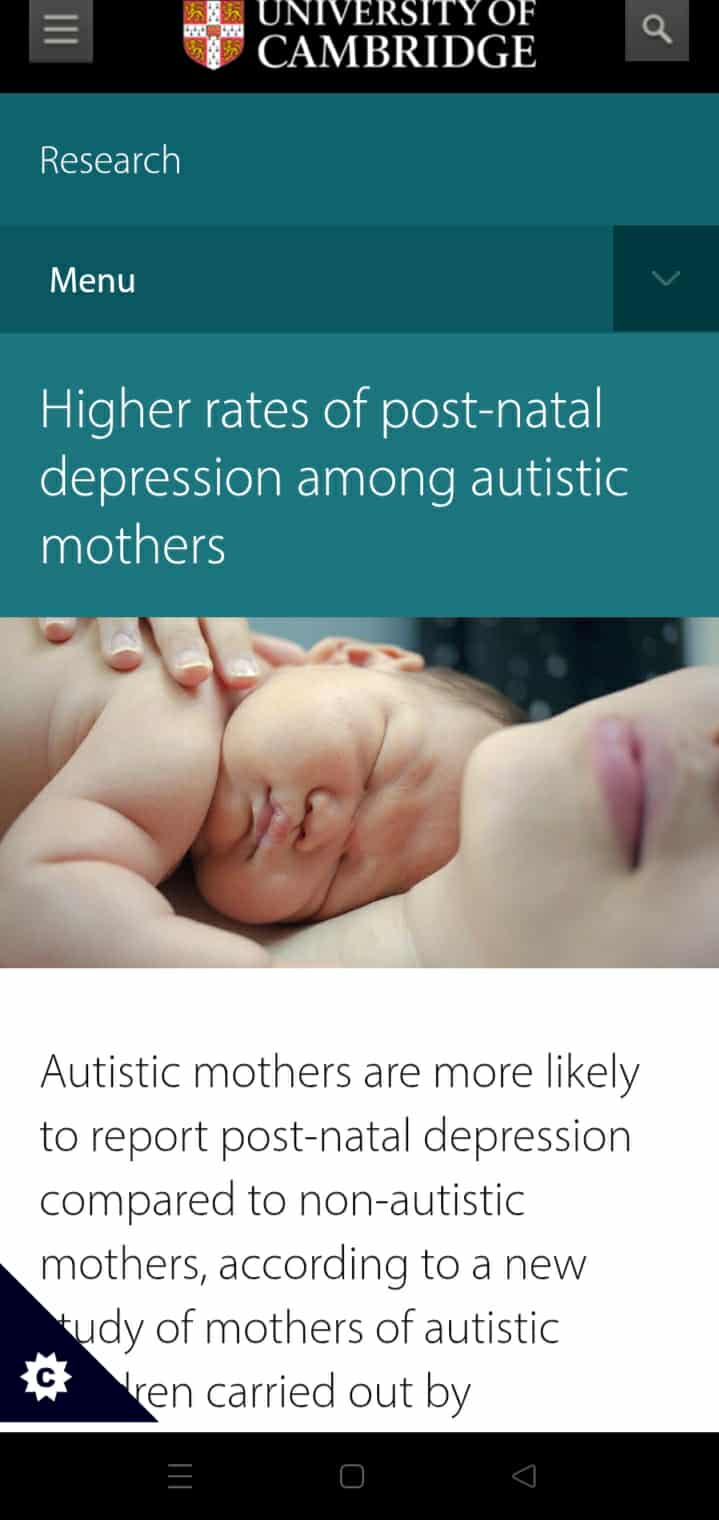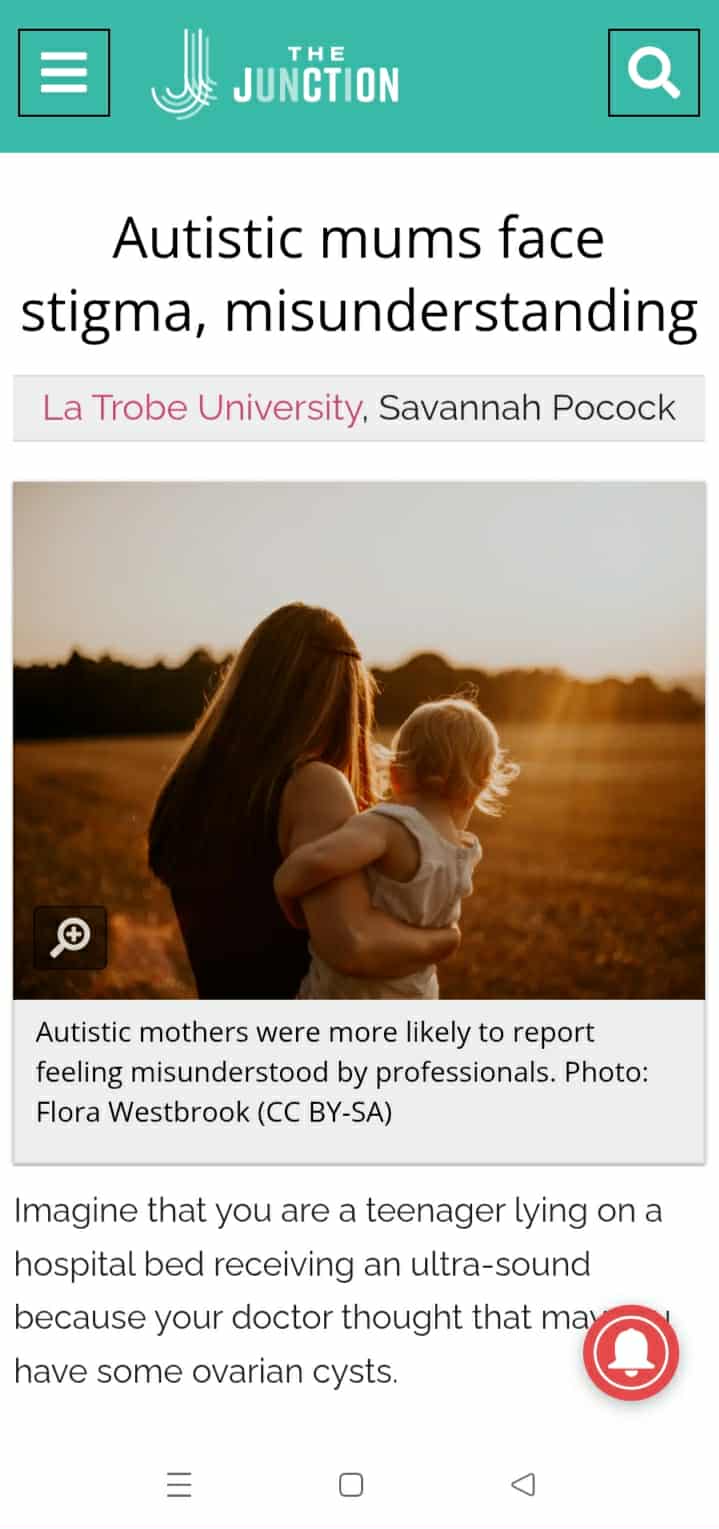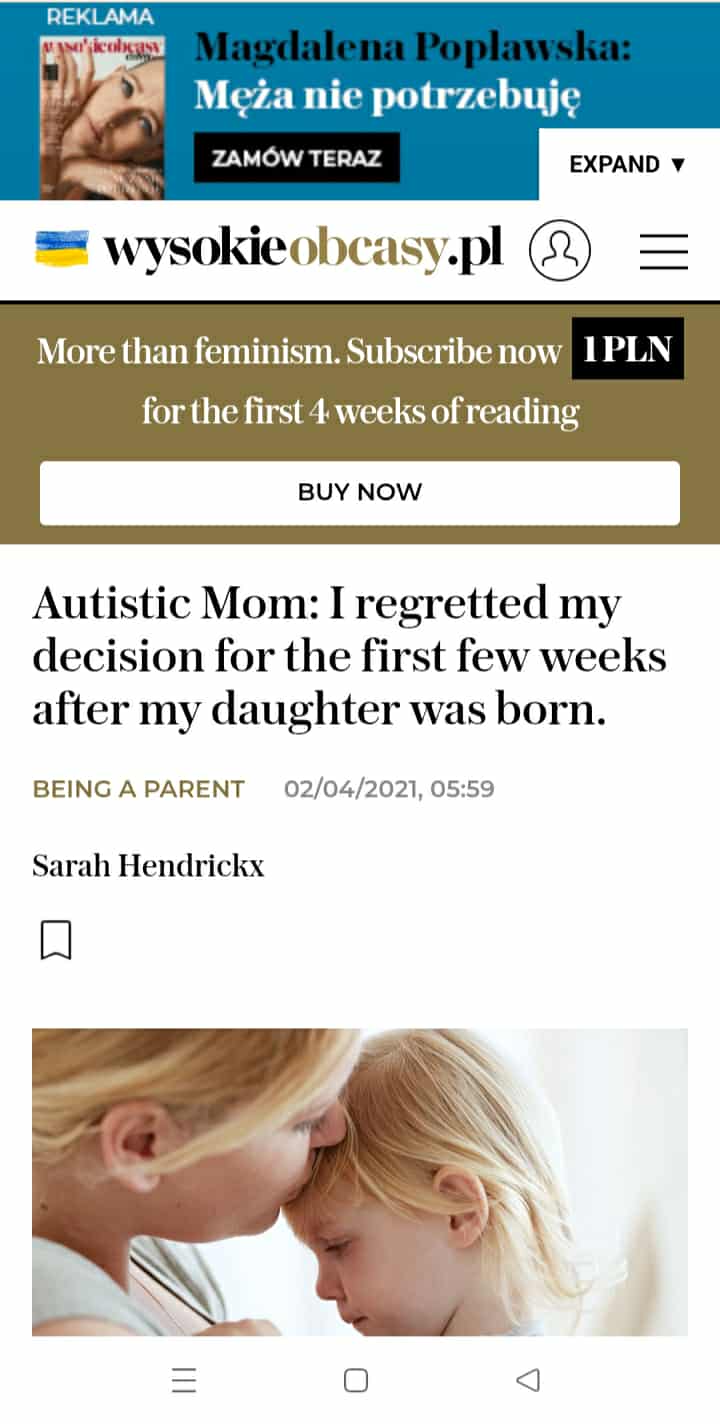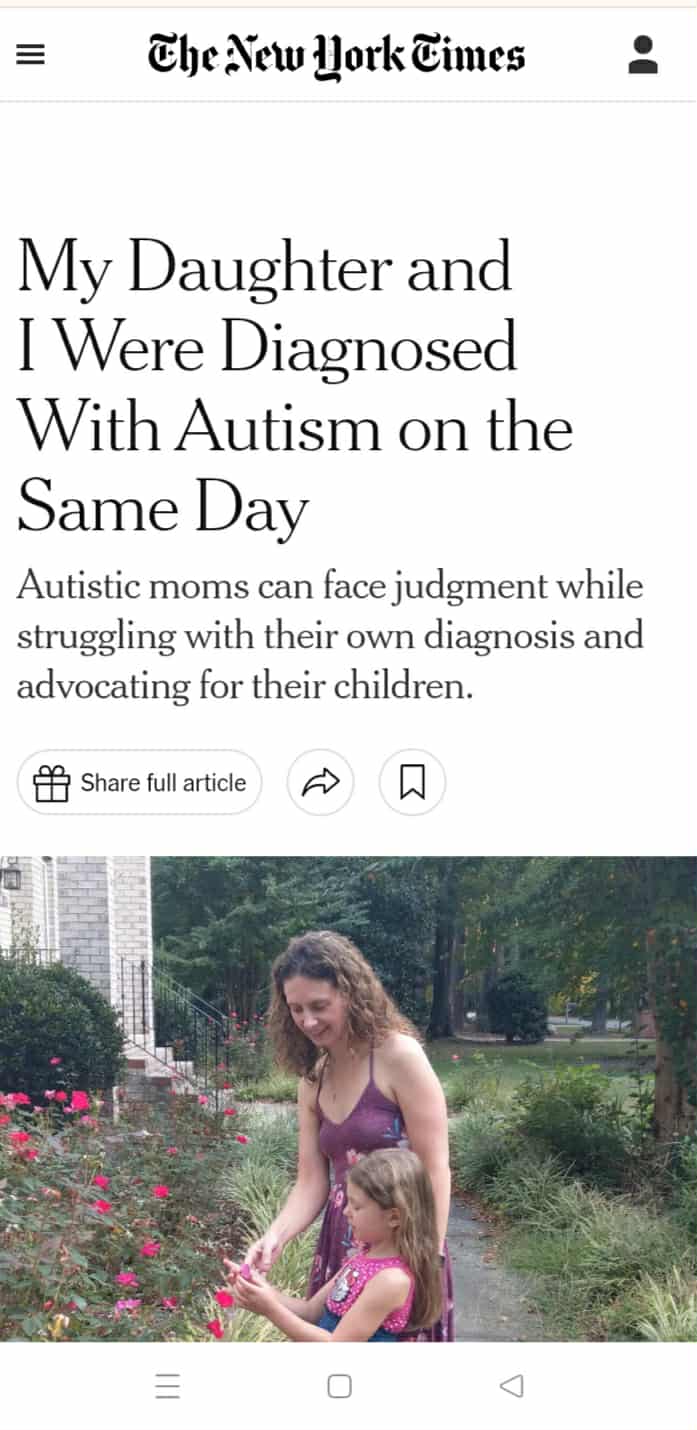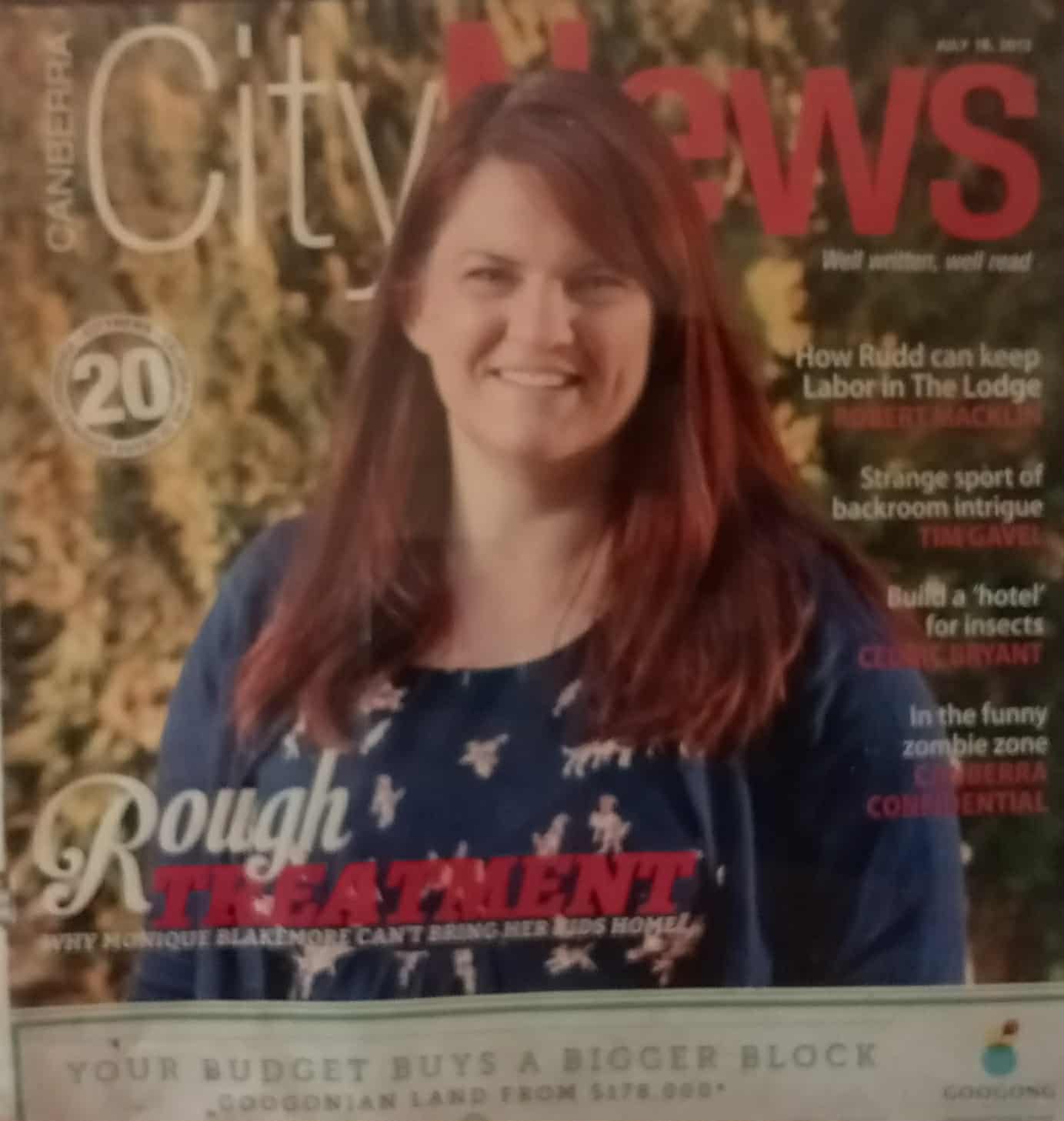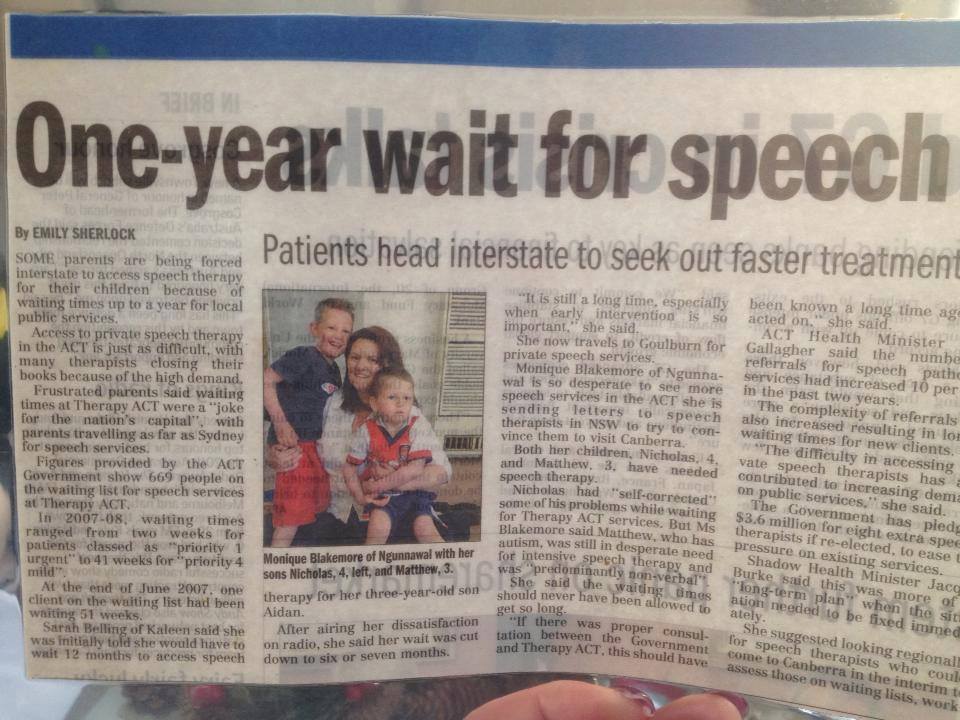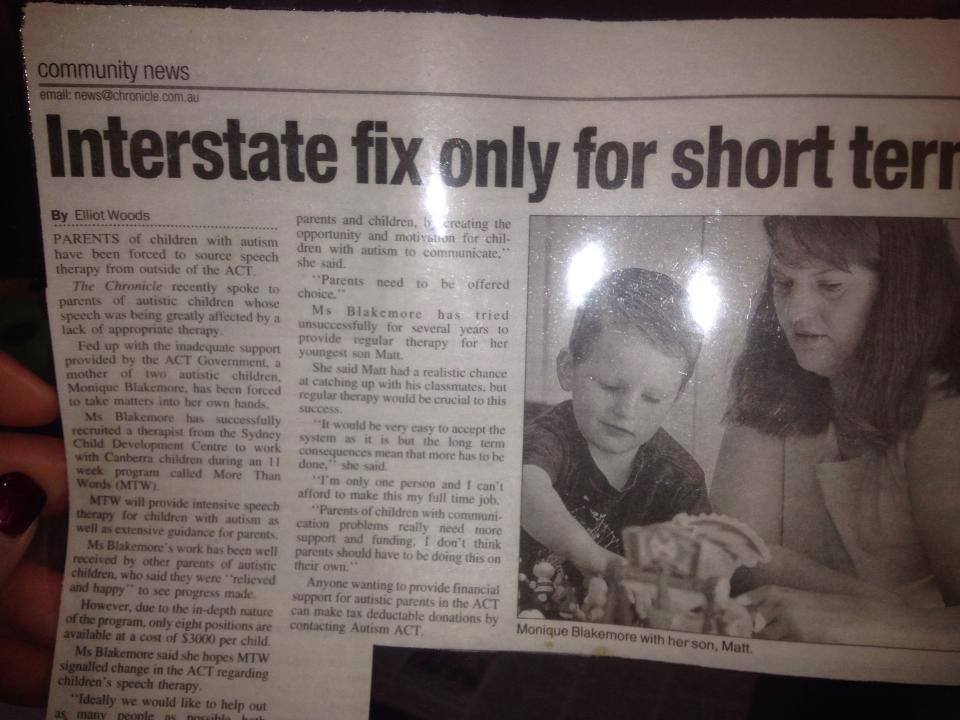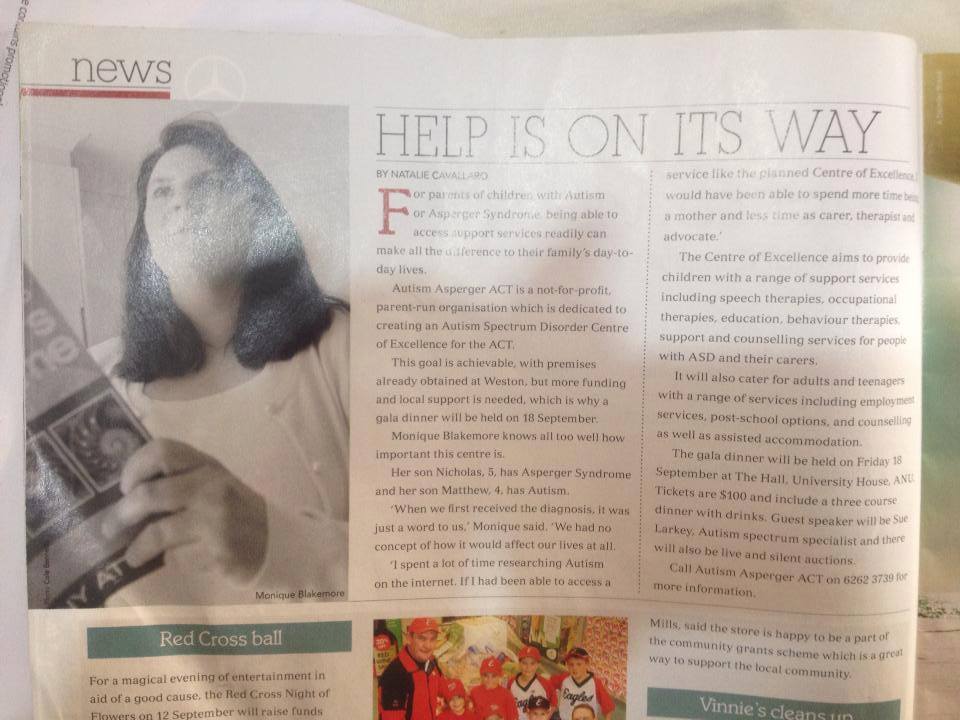In the Media
Featured in national and international media for her advocacy on autism, gender and human rights. Through interviews, articles, and documentaries, she continues to raise awareness for Autistic human rights

This ABC TV story was the first of three that featured my family. One of them winning a National Yoralla Media Award for best disability representation in the media.
At the time, I was desperate to find services that could help my youngest child learn how to communicate. That urgency pushed me to speak out, to share our story publicly, to start conversations with politicians, and to press for better support.
Through those efforts, I was able to arrange for a speech and language therapist to visit local families and deliver a program that made a real difference. Click image to view the video
I was invited to appear on the ABC TV program Q+A, hosted by Hamish McDonald. On the program, I spoke about my recent experience attending a Disability Representative Organisation (DRO) meeting with the (then) incoming NDIA Minister, Senator Reynolds.
I used this platform to highlight an issue close to my heart: the barriers Autistic people classified as “level 1” face when trying to access the NDIS. Despite their very real challenges, many are excluded from support under the scheme. I also raised the urgent need for greater recognition and assistance around the mental health difficulties experienced by Autistic people and their families.
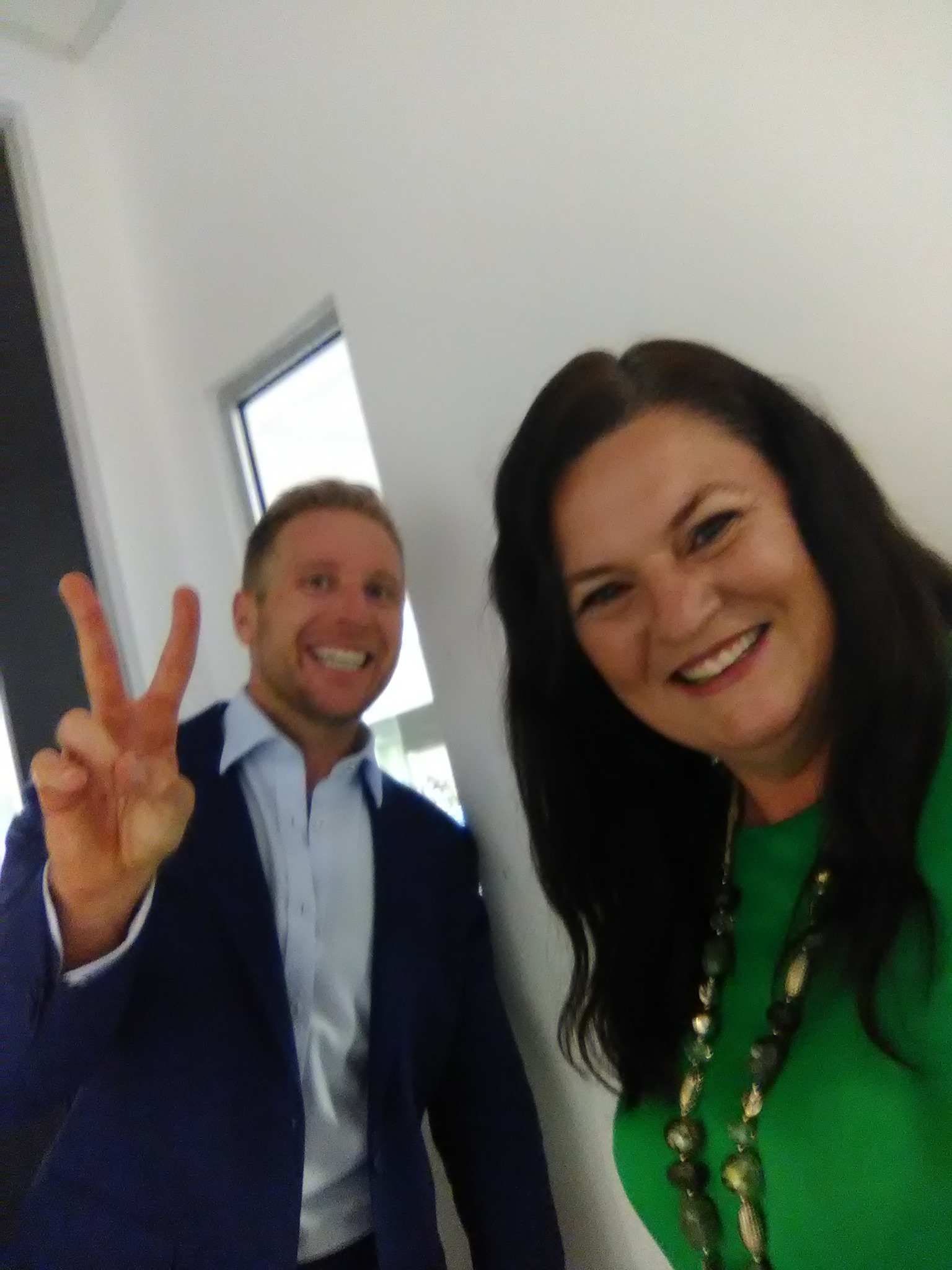
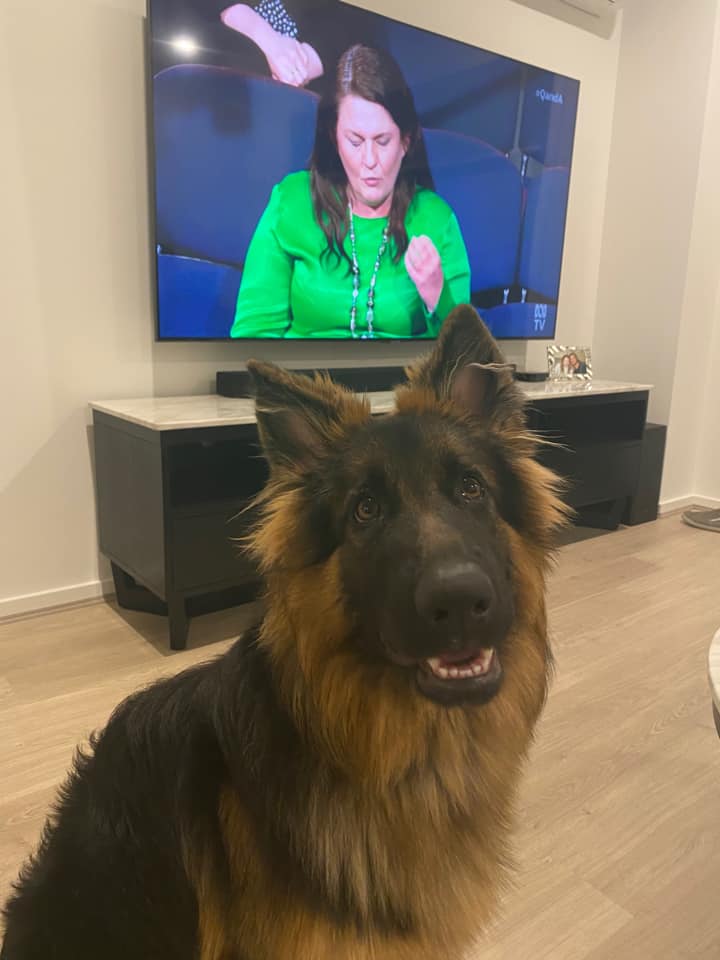
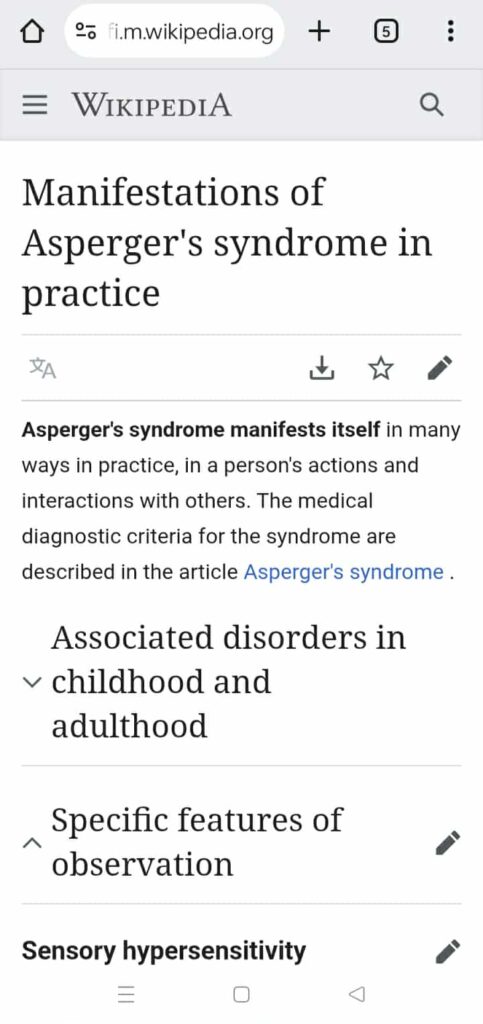
Wikipedia: Manifestations of Asperger’s Syndrome in Practice.
In this entry my work for the NGO I co founded, Autism Women Matter, is referenced. “The British organisation Autism Women Matter , which represents women on the autism spectrum, and some researchers have suggested that the reason for this is that diagnostic tests for autism spectrum disorders use questions that are not equally suitable for diagnosing both sexes”.
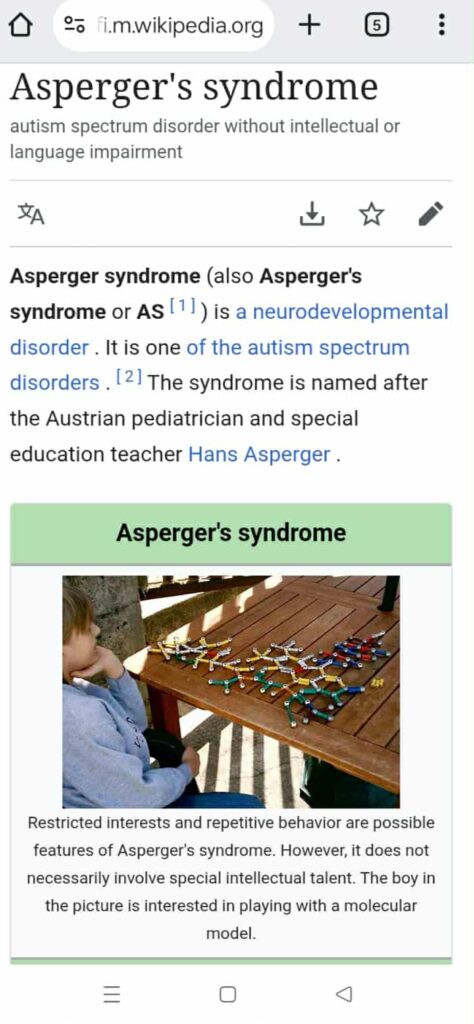
Wikipedia: Asperger’s Syndrome.
In this entry a survey I did of 100 British women, and submitted to the UK Government for the Autism Strategy Review, Think Autism, is referenced. “Other studies have found that only about 70-75% of women on the autism spectrum report being heterosexual”
(note: my study found 70-75% did not identify as heterosexual)
